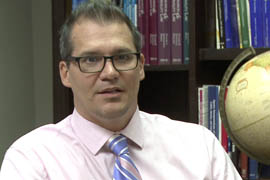Attorneys, advocates to immigrants: Beware of notario fraud

Resources:
PHOENIX – Spanish-speaking immigrants working their way through the federal immigration system often seek legal services from notarios, people who pose as attorneys while charging much less than lawyers.
Too often, immigration attorneys and advocates say, notarios take money from desperate people and cause major problems in their immigration cases. They say the problem will only get worse with people applying for the Obama administration’s deferred action program and anticipating immigration reform.
“Any time there is the idea of new amnesty or reform, we see (notarios) coming out of the woodwork, we see offices popping up out of nowhere,” said Fernando Quiroz, executive director of American Beginnings, an immigration advocacy group in Yuma.
The word “notario” is the Spanish-language equivalent of notary public. In most Latin American countries a notario is a highly trained legal professional, like an American lawyer. Notarios working in the U.S. sometimes take advantage of those who may not know the distinction. This can also happen with certified document preparers, who sometimes bill themselves as notarios to attract business.
Notarios work in a gray area of immigration law in Arizona. They’re allowed to help people fill out forms for nominal fees, but they’re prohibited from giving legal advice or providing representation on immigration-related matters.
Critics say notarios aren’t qualified to handle complex immigration cases but take immigrants’ money anyway.
Maria Elena-Upson, spokeswoman for U.S. Citizenship and Immigration Services, said the agency has investigated six claims of notario fraud in Arizona during the past year. The numbers are likely much higher, she said, because those in the U.S. illegally are reluctant to file official reports.
In Yuma, Quiroz said he’s worked with families who were afraid to report notario fraud.
“The problem that we face is that we have so many families that have been hurt and fraud committed against them, but they’re still too afraid to be able to call the police because of their legal status,” Quiroz said.
Rick DeBruhl, spokesman for the State Bar of Arizona, said it’s well known that notario fraud exists “in a big way.”
“All the immigration attorneys will tell you it happens, but trying to find victims is a big nightmare,” he said.
DeBruhl said the State Bar has the authority to investigate and pursue anybody acting like an attorney, but it needs cases to investigate first.
The State Bar is trying to raise awareness in the Spanish-language community by airing radio ads and hosting a phone bank on Univision the week of April 15.
“These people aren’t coming forward, but we need to tell them what to look out for,” DeBruhl said. “What we have more than anything else is an information campaign.”
Elena-Upson of U.S. Citizenship and Immigration Services said the onus is on victims to come forward because the government can’t stop notarios that it doesn’t know about.
She said her agency partnered with the State Bar in 2011 to combat notario fraud.
Gerry Burns, a Chandler-based immigration attorney, said other states attack notarios much harder than Arizona.
“With the politics here you wonder if there’s actually a motivation,” he said. “We’ve heard a lot of lip service, but for me I haven’t heard of any prosecution, the results of any task force.”
Magaly Fontes, an immigration attorney in Phoenix, said there is a role for state-certified document preparers because some immigration situations can be handled without the need for legal advice. But often the cases are complex and require an attorney, she said.
“Everybody’s different,” Fontes said. “Everybody has a very diverse set of facts that can’t apply to the same situations and same set of rules.”















